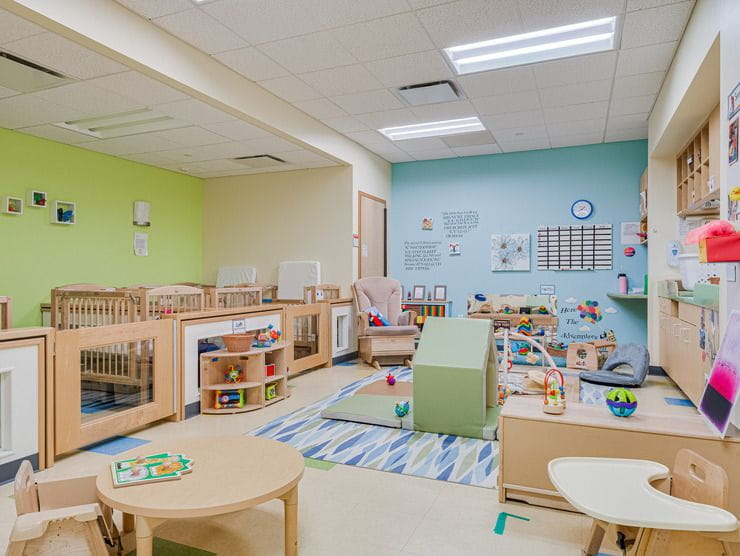With more than 91,000 employees spanning 90 countries, Sanofi is truly a global company. A leading developer of pharmaceutical innovations, the healthcare company is on a mission to positively impact the people and communities it serves, starting with its diverse and dispersed workforce. Nathalie Grenache, Head of People, Global Specialty Care & North America at Sanofi, joined us for a brief conversation where she detailed the ways in which Sanofi is helping its employees, particularly its caregivers, thrive both at work and in life.
Why did Sanofi want to provide support to caregivers and what is your approach to supporting them?
First off, I think virtually everyone in the workforce understands the work-life struggle. Trying to manage a demanding career and a family simultaneously is a tough task and can take its toll. We’re very conscious of the fact that our employees have lives outside of our facilities and we need to be understanding and supportive of the whole person. It’s not enough to just give them what they need to succeed at work – we need to support their caregiving needs at home, their mental and physical wellbeing, their financial health, etc. Caring for your people holistically is one way to ensure you’re getting the best version of every employee when they come into work.
Secondly, we’re a global company and have a very large and diverse workforce. Support that works for one employee may be less relevant to another depending on what stage of life they’re in. So, our approach is to provide as much depth and breadth to our programs as possible to ensure we’re meeting different needs.
Why did you feel that back-up care was a benefit you wanted to feature? How has it fared so far?
Life happens – usually when we least expect it. Back-up care really comes in handy when your usual care company falls through at the last minute for whatever reason. Each employee at Sanofi gets twenty days of back-up care per year, with five additional days offered after the birth of a baby. Results-wise, employees have really embraced the program and it has grown extremely well. We saw a 25% increase in back-up care users in 2023. 46% of those uses were for school-aged children, so that shows the impact the program can have beyond just early child care. In total, we saved over 2,500 workdays last year due to our back-up care offering.
With the U.S. population continuing to age, are you seeing more of a need to support employees in the sandwich generation?
Absolutely – many of our employees fall into the sandwich generation, meaning they are caring for both children and adult dependents. It’s important that our care options reflect this reality and that we provide a broader range of solutions to meet everyone’s needs. That’s why our back-up care program offers in-home elder care coverage, in addition to our child care coverage. We also have a dedicated elder care program which provides access to essential tools, personalized guidance, assessments, and care. Last year alone we saw a 14% increase in unique users of our elder care benefit, so the need is certainly there and is only going to increase over time.
What are some of the wellbeing initiatives you have in place to support your employees, specifically your caregivers, holistically?
Our Total Wellbeing programs are designed to support our multigenerational workforce at all stages of life by offering something for everyone. This includes digital weight management tools, menopause support, diabetes management, family planning support, financial and mental health resources, retirement assistance and so much more. For our working parents, we offer priority access at Bright Horizons centers to ease the burden of finding child care. We also provide a paid gender-neutral parental leave program where employees are eligible for 14 paid weeks off after the birth or adoption of a child. In addition, we provide four weeks of paid caregiver leave for employees that need to care for a parent, child, or spouse with a serious health condition.
Flexibility is essential for our working caregivers, so we offer hybrid work arrangements and flex hours that allow our employees to work schedules that better align with their needs. We also offer part-time and job-share programs where two or more employees share the responsibilities of one job and work a reduced number of hours. This gives our caregivers more time to spend with their loved ones.
Are you doing anything to support your caregivers in their pursuit of education and upskilling?
Higher education is highly coveted but not always attainable for working caregivers because of the required time and financial investment. We want our employees to grow with us, both personally and professionally, so we offer a tuition reimbursement program of up to $10k per calendar year per employee. Most of our learners have been with Sanofi between one and five years, so it’s been an amazing way to engage new talent. We’ve also found that the retention rate among employees enrolled in the education program is 98%, meaning it plays a huge role in helping us build a sustainable workforce.
In addition, we offer a program called College Coach, which provides support for the children, particular teenagers, of our working parents. The program connects these kids with former admissions professionals, who help them navigate the college process. It’s our way of helping them achieve a college education, while also alleviating the stress that the process can cause for our working parents. There’s really a great synergy between our care and education programs – the care programs give parents the peace of mind to pursue a degree, knowing their children are being looked after, while the tuition reimbursement gives them the means to achieve that goal.
Have you recently introduced any new programs or benefits that you think better address the unique challenges facing modern employees?
Given the uncertainty we saw at the beginning of this decade, it’s important to our employees that they have some form of security in the event the unexpected happens. One relatively new program that we launched this year is called “Cancer & Work: Acting Together.” If anyone at Sanofi is diagnosed with cancer or another critical illness, their job, including salary and benefits, will be maintained for up to 12 months. The program also supports impacted caregivers by providing leave and extra flexibility when needed. No one wants to ever need that benefit, but having it, and showing our employees that Sanofi cares enough about them to have it, is motivating for our people.
Thank you so much to Nathalie for taking the time to speak with us!




